VW T-Cross VS Renault Clio – Specs, Efficiency & Price Comparison
Find out now which car fits your needs better!
The VW T-Cross (SUV) is powered by a Petrol engine and comes with a Manuel or Automatic transmission. In comparison, the Renault Clio (Hatchback) features a Full Hybrid, Petrol or LPG engine and a Automatic or Manuel gearbox.
When it comes to boot capacity, the VW T-Cross offers 455 L, while the Renault Clio provides 391 L – depending on what matters most to you. If you’re looking for more power, you’ll need to decide whether the 150 HP of the VW T-Cross or the 143 HP of the Renault Clio suits your needs better.
There are also differences in efficiency: 5.40 L vs 4.30 L. In terms of price, the VW T-Cross starts at 20900 £, while the Renault Clio is available from 16600 £.
Compare all the key specs now and find out which model fits your lifestyle best!
VW T-Cross
The VW T-Cross stands out as a versatile compact SUV that combines practicality with style. Its interior design offers a spacious and flexible layout, ideal for both city driving and weekend adventures. With its modern infotainment system, the T-Cross ensures drivers and passengers stay connected throughout their journeys.
details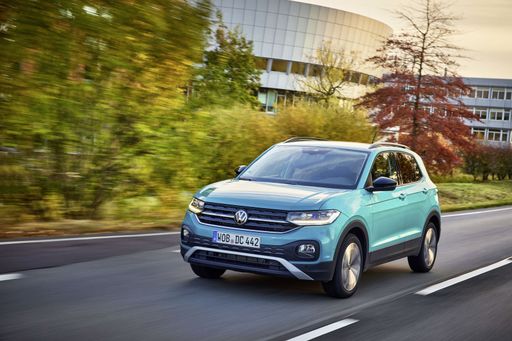 @ Volkswagen
@ Volkswagen
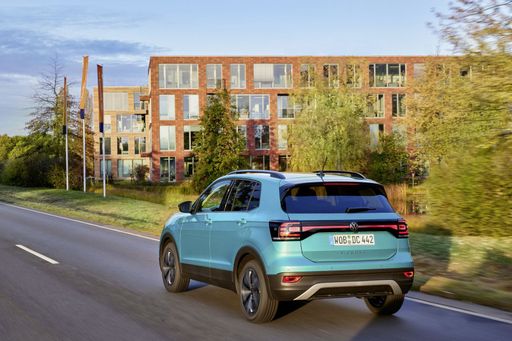 @ Volkswagen
@ Volkswagen
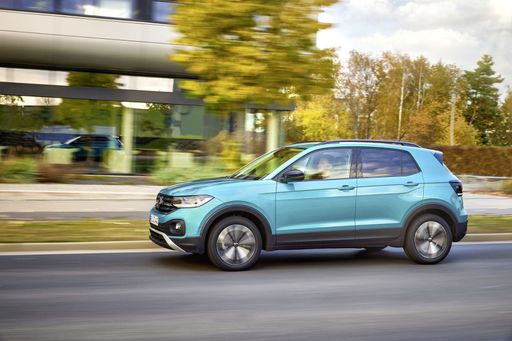 @ Volkswagen
@ Volkswagen
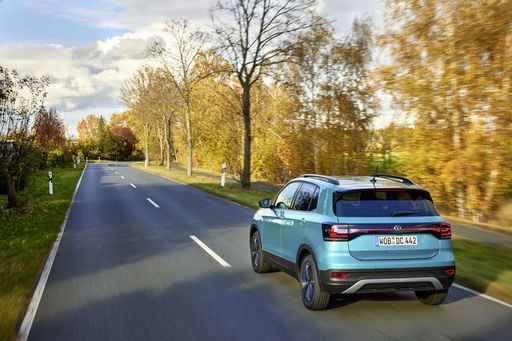 @ Volkswagen
@ Volkswagen
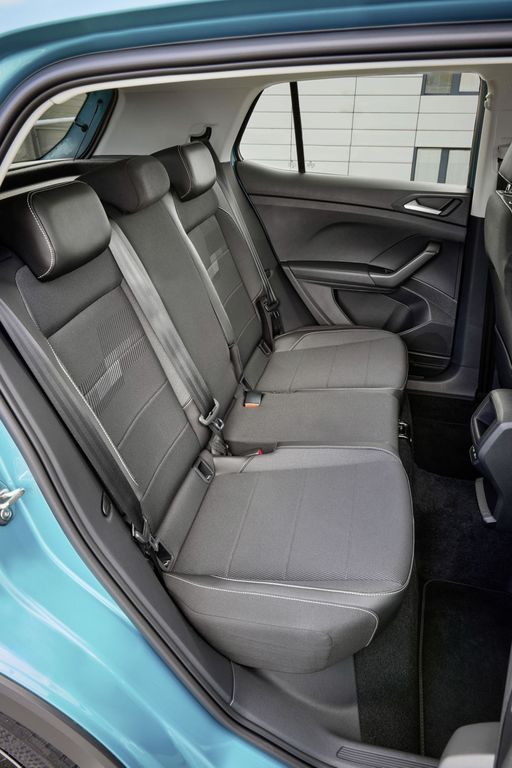 @ Volkswagen
@ Volkswagen
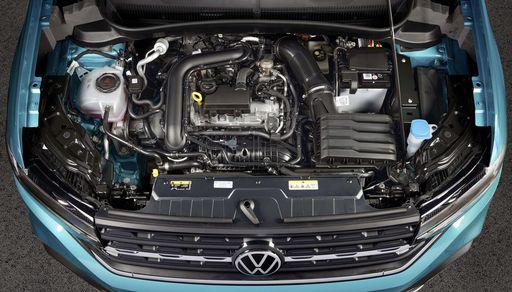 @ Volkswagen
@ Volkswagen
Renault Clio
The Renault Clio continues to impress with its sleek design and agile handling, making it a standout choice in the compact car segment. Inside, it offers a surprisingly spacious and comfortable cabin, crafted with high-quality materials that enhance the driving experience. Its fuel efficiency and reliable performance make it an attractive option for both city commuting and longer journeys.
details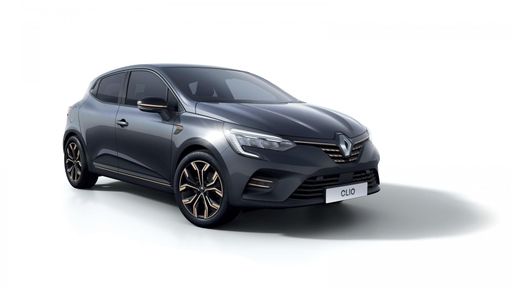 @ renault-presse.de
@ renault-presse.de
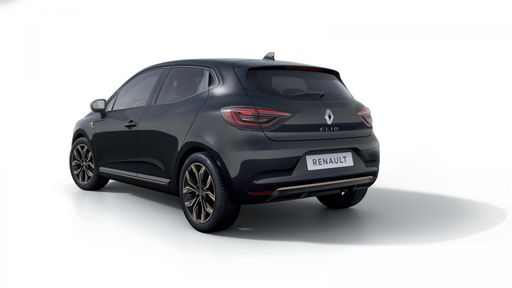 @ renault-presse.de
@ renault-presse.de
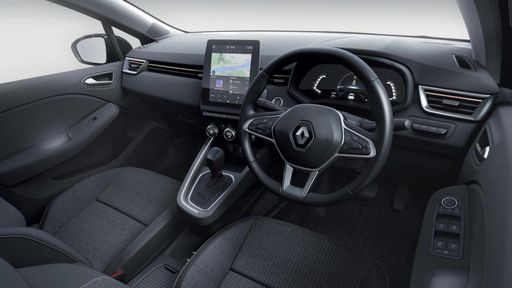 @ renault-presse.de
@ renault-presse.de

|

|
|
|
|
Costs and Consumption |
|
|---|---|
|
Price
20900 - 31300 £
|
Price
16600 - 23000 £
|
|
Consumption L/100km
5.4 - 6 L
|
Consumption L/100km
4.3 - 7 L
|
|
Consumption kWh/100km
-
|
Consumption kWh/100km
-
|
|
Electric Range
-
|
Electric Range
-
|
|
Battery Capacity
-
|
Battery Capacity
0.60 kWh
|
|
co2
124 - 136 g/km
|
co2
97 - 122 g/km
|
|
Fuel tank capacity
40 L
|
Fuel tank capacity
32 - 42 L
|
Dimensions and Body |
|
|---|---|
|
Body Type
SUV
|
Body Type
Hatchback
|
|
Seats
5
|
Seats
5
|
|
Doors
5
|
Doors
5
|
|
Curb weight
1267 - 1338 kg
|
Curb weight
1124 - 1331 kg
|
|
Trunk capacity
455 L
|
Trunk capacity
301 - 391 L
|
|
Length
4127 mm
|
Length
4053 mm
|
|
Width
1784 mm
|
Width
1798 mm
|
|
Height
1573 mm
|
Height
1440 mm
|
|
Payload
463 - 480 kg
|
Payload
398 - 406 kg
|
Engine and Performance |
|
|---|---|
|
Engine Type
Petrol
|
Engine Type
Full Hybrid, Petrol, LPG
|
|
Transmission
Manuel, Automatic
|
Transmission
Automatic, Manuel
|
|
Transmission Detail
Schaltgetriebe, Automat. Schaltgetriebe (Doppelkupplung)
|
Transmission Detail
Automatikgetriebe, Schaltgetriebe
|
|
Drive Type
Front-Wheel Drive
|
Drive Type
Front-Wheel Drive
|
|
Power HP
95 - 150 HP
|
Power HP
67 - 143 HP
|
|
Acceleration 0-100km/h
8.4 - 11.3 s
|
Acceleration 0-100km/h
9.3 - 17.1 s
|
|
Max Speed
180 - 200 km/h
|
Max Speed
160 - 174 km/h
|
|
Torque
175 - 250 Nm
|
Torque
95 - 205 Nm
|
|
Number of Cylinders
3 - 4
|
Number of Cylinders
3 - 4
|
|
Power kW
70 - 110 kW
|
Power kW
49 - 105 kW
|
|
Engine capacity
999 - 1498 cm3
|
Engine capacity
999 - 1598 cm3
|
General |
|
|---|---|
|
Model Year
2024
|
Model Year
2023 - 2024
|
|
CO2 Efficiency Class
D, E
|
CO2 Efficiency Class
C, D
|
|
Brand
VW
|
Brand
Renault
|
VW T-Cross
The VW T-Cross: A Compact SUV with a Punch
Volkswagen’s T-Cross is stamped as one of the most dynamic models in its segment, combining compact dimensions with versatile features. Designed to bring the SUV experience to an everyday environment, the T-Cross ensures both urban convenience and a robust driving performance. Let's delve deeper into its technical specifications and innovative offerings.
Efficient Powertrains and Performance
Under the hood, the VW T-Cross harnesses efficient powertrains including several petrol engine options, ranging from a modest 95 PS to a more dynamic 150 PS. The model's engine configurations offer either manual or automatic transmission options, coupled with a front-wheel-drive system. These specifications aim to strike a balance between spirited driving and fuel efficiency.
The T-Cross comes with a turbocharged 1.0-litre or 1.5-litre TSI engine, equipped with cylinder deactivation (ACT) technology, enhancing fuel economy and reducing emissions. The engines produce a torque range from 175 to 250 Nm, making everyday driving smooth and responsive.
Fuel Efficiency and Environmental Considerations
The VW T-Cross stands out for its commendable fuel consumption figures, running between 5.6 to 6 litres per 100 km. This classifies it within a respectable CO2 efficiency class D, making it an appealing choice for drivers conscious of both their budgets and environmental footprint. The CO2 emissions range from 127 to 135 g/km, reflecting Volkswagen’s commitment to sustainability.
Design and Utility
Sporting a compact design, the T-Cross measures 4127 mm in length, 1784 mm in width, and 1573 mm in height, offering easy manoeuvrability coupled with an elevated driving position. The SUV hosts a 455-litre boot space, providing ample room for personal belongings or shopping expeditions. Priding itself on practical utility, it can comfortably seat five passengers and supports a maximum load capacity of up to 480 kg.
Comfort and Technology
The T-Cross comes available in various trim levels, such as the GOAL, Life, R-Line, and Style, each offering distinct features tailored to customer preferences. Connectivity and infotainment systems are given priority with the availability of a touchscreen display, ensuring convenience through seamless smartphone integration, navigation systems, and a suite of driver assistance features.
A Conclusion on the VW T-Cross
The VW T-Cross is an embodiment of modern ingenuity within the compact SUV market. It harmonises performance with practicality and presents a modernistic approach to urban driving. Whether you seek efficiency, cutting-edge technology, or ample space to accommodate daily activities, the T-Cross makes a compelling proposition. With a pricing bracket spanning from €24,355 to €36,530, the T-Cross caters to a broad array of budgets while promising a touch of Volkswagen's famed quality and innovation.
Renault Clio
Introduction to the Renault Clio
The Renault Clio, a popular choice among compact cars, has continually advanced its design and technology to maintain a strong position in the automotive market. With enhancements in engineering, efficiency, and aesthetic appeal, the Clio remains a top contender in the hatchback category.
Advanced Hybrid Technology
The Renault Clio's hybrid technology is one of its standout features. The E-Tech Hybrid system optimises both performance and efficiency, offering a seamless transition between electric and fuel-powered driving. This setup results in an impressive fuel consumption rate of 4.3 L/100km, making it an attractive option for eco-conscious drivers.
Efficient Engine Options
Renault offers a variety of engine choices for the Clio, accommodating different driving styles and preferences. From the economical SCe 65 manual variant to the powerful TCe 100 LPG gas version, each option is engineered to balance performance with fuel efficiency. With outputs ranging from 67 to 143 PS, drivers can enjoy a tailored driving experience.
Design and Comfort
The Renault Clio stands out with its sleek and modern design, characterized by its hatchback body style. The interior boasts an ergonomic layout with seating for five, ensuring passenger comfort and convenience. With a boot capacity of 301 to 391 litres, the Clio also offers practical storage solutions for everyday use.
Safety and Innovation
Safety is a key priority for Renault, and the Clio reflects this commitment with its suite of innovative safety features. Advanced driver-assistance systems are integrated throughout, enhancing both safety and usability. The Clio encompasses features like lane departure warning, automatic emergency braking, and adaptive cruise control.
Cost Efficiency and Environmental Impact
The Renault Clio not only offers affordability with pricing ranging from €18,450 to €26,800, but also promises low running costs. With CO2 emissions between 97 and 130 g/km, the Clio fits well within the C and D efficiency classes. This makes it a cost-effective and environmentally friendly choice for modern drivers.
Conclusion
Renault Clio remains a dynamic, dependable and economical option in the compact car segment. With its innovative technologies, diverse engine options, and commitment to safety and design, the Clio continues to impress and adapt to the evolving demands of the automotive world.
The prices and data displayed are estimates based on German list prices and may vary by country. This information is not legally binding.
